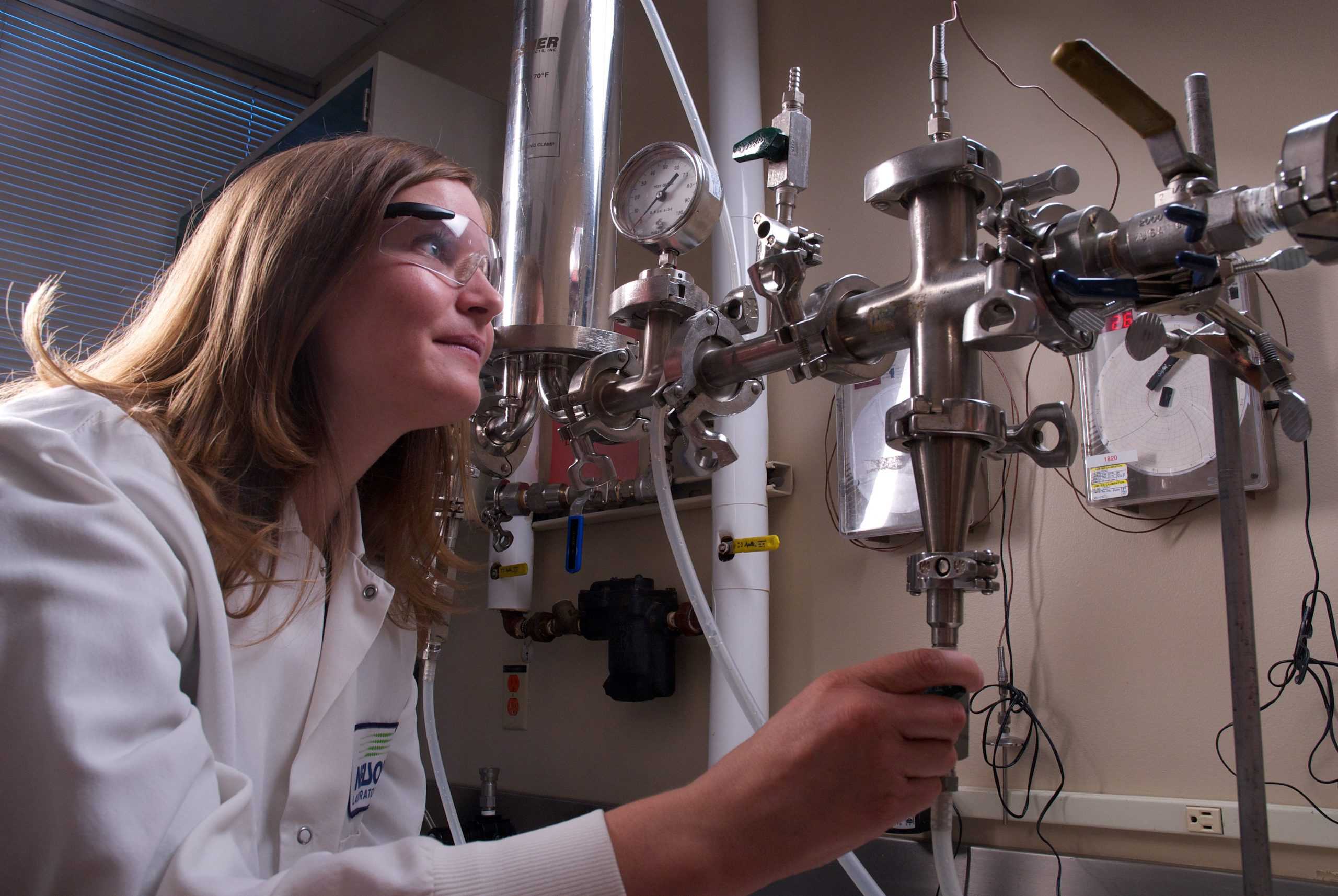Testing Locations
- Salt Lake City, UT, USA
- Petit-Rechain, Belgium
- Somercotes, England
- Rantigny, France
- Wiesbaden, Germany
- Shanghai, China
Learn more about our locations and their certifications.
Study Outline
For the Filter Test study, the organism is grown in a minimal media or other appropriate media depending on the required growth conditions, size ranges needed, challenge organism and concentration. The test objective of a most severe bacterial challenge to the filter is met by the challenge conditions which include high pressure, high flow rates, and a high bacterial concentration per cm2 of EFA (effective filtration area). The growth parameters, temperatures, and media are adapted from the ASTM and HIMA methods.
Each test filter is challenged with a suspension of the specified challenge organism, usually B. diminuta for a 0.2 micron membrane, S. marcescens for a 0.45 micron membrane, or Mycoplasma for a 0.1 micron membrane cultured to maximize the percentage of organisms capable of passing through the selected positive control filter (typically a 0.45 µm filter is used for B. diminuta, and other membrane sizes are used for other sized organisms).
Sufficient volume of this challenge suspension is used to provide the correct concentration of organism for the effective filtration area (EFA) of each filter (typically equivalent to at least 1 x 107 colony-forming units (CFU) per cm2 for B.diminuta; this may vary with other challenge organisms).
The challenge will be conducted at a high flow rate and a maximum differential pressure (typically 30 psig). The effluent will be collected and assayed quantitatively. Integrity testing is performed before and after the bacterial challenge procedure.
Please provide the effective filtration area of the filter when submitting samples.
If you have additional questions about Filter Sterilization Validation testing, or would like to consult with the experts at Nelson Labs, just send us a request or call us at +1 (801) 290-7500.



